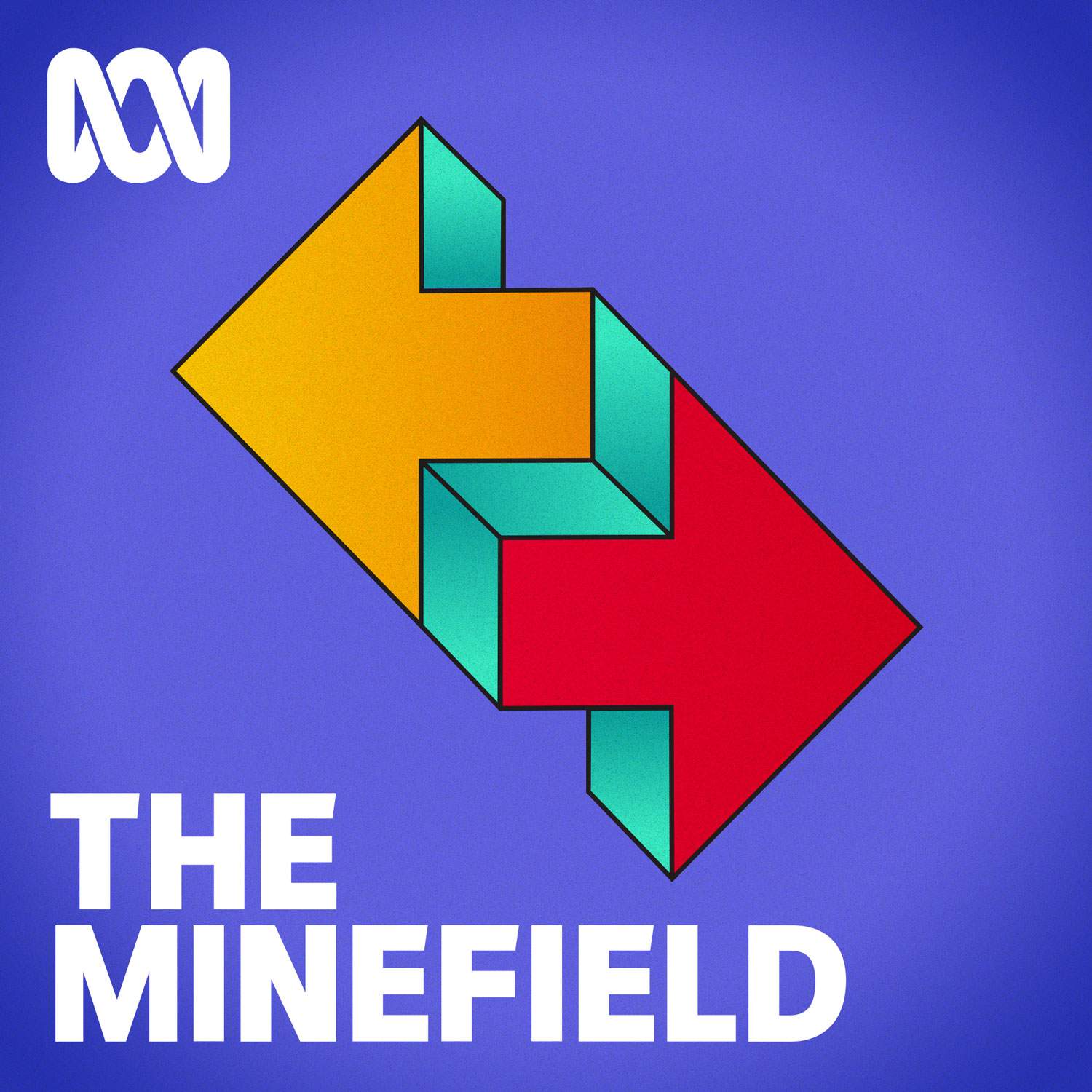

The Minefield
ABC
In a world marked by wicked social problems, The Minefield helps you negotiate the ethical dilemmas, contradictory claims and unacknowledged complicities of modern life.
Episodes
Mentioned books

Jan 1, 2025 • 54min
What's behind the mass appeal of live music events?
It is worth reflecting, not just on what is singular about Taylor Swift at this particular cultural moment — why she attracts both the loyalty and the animus that she does — but on what it is about live music events that now draw millions of people to them.This episode was first broadcast on 18 February 2024.

Dec 25, 2024 • 54min
The ethics of "Groundhog Day"
During the pandemic, there was a sudden renewal of interest in Harold Ramis's 1993 film "Groundhog Day" — especially its bleaker aspects. But this missed its sophistication and humanity, to say nothing of its acute depiction of moral growth.This episode was first broadcast on 05 May 2024.

Dec 18, 2024 • 53min
Are we losing a sense of "the common"?
In this discussion, Jonathan Green, a seasoned editor and commentator, explores the vanishing sense of shared humanity amid rising individualism. He addresses how community ties have evolved, emphasizing the importance of mutual obligation over personal identity claims. Delving into the impact of technology, he highlights the need to reconnect with our commonalities to foster unity. Green also critiques the commercialization of spiritual practices and calls for a cultural shift prioritizing collective well-being over personal desires. This thought-provoking dialogue challenges listeners to rethink their values.

Dec 11, 2024 • 54min
The necessity of withdrawing
Are periodic bouts of withdrawal from life’s urgent demands and heated debates necessary to regain a sense of our shared humanity, and to renew the commitments that sustain the moral life? This episode was first broadcast on 17 March 2024.

5 snips
Dec 4, 2024 • 54min
What are we doing when we give gifts?
Kim Huen, a Senior Lecturer at the Australian National University and expert in caregiving and ethics, dives into the complexities of gift-giving, especially during holiday seasons. She discusses the ethical implications, distinguishing gift-giving from mere almsgiving and emphasizes the emotional connections forged through thoughtful gifts. The conversation touches on the evolving nature of gifts—from cash to experiential offerings—and highlights how acceptance of gifts can create feelings of obligation, underscoring the deep relationships that gifts symbolize.

Dec 3, 2024 • 53min
Bonus episode: Can democracy be saved with decency? A public lecture by Scott Stephens
The lecture delves into the retreat of democracy and the rise of authoritarianism, drawing lessons from past thinkers. It highlights the importance of civility and meaningful relationships, rooted in historical insights. The discussion connects literature, like Camus' 'The Plague', to today's political isolation and moral decline. Language's influence on democracy is examined, stressing the need for respectful discourse. Ultimately, it advocates for reclaiming decency and mutual respect amidst societal challenges, emphasizing our shared humanity.

Nov 27, 2024 • 55min
“The Godfather, Part II” — a parable of corruption and fall
In December 1974, “The Godfather, Part II” premiered in New York City. Following the unlikely success and unexpected acclaim that his 1972 adaptation of Mario Puzo’s bestselling novel received, Francis Ford Coppola was granted almost unlimited discretion to realise his cinematic vision for the sequel — and he used that discretion to greatest possible effect.In fact, “The Godfather” and “The Godfather, Part II” are rare instances of films that far outstrip, in both its narrative depth and its aesthetic form, the source material on which they are based.At the heart of the first two “Godfather” films is a stark contrast. Vito is virtuous within a cinematic universe in which legality and morality are not synonymous: the fact that his assassination of the tyrannical Don Fanucci is celebrated, that his “favours” are beneficent, that he is attentive to his wife and children — all suggest a kind of moral goodness. Whereas Michael, having begun as the most virtuous of Don Corleone’s sons, falls deeper than the others could have gone.Having begun alone, somewhat removed from the family, Michael ends the film utterly, existentially, morally, isolated.

Nov 20, 2024 • 54min
Is a “digital duty of care” enough to protect young people from social media’s harms?
Since the start of November, the Australian government has made two significant announcements aimed at preventing the harms that social media platforms are causing to the mental health of adolescents — but are these measures enough?

Nov 13, 2024 • 54min
How much control should corporations have over the speech of their employees?
Josh Bornstein, an employment and labor relations lawyer and author of "Working for the Brand," dives into the fraught intersection of corporate power and employee free speech. He discusses the chilling effect of corporate policies on political expression, especially in industries like journalism. The conversation critically explores how large corporations, driven by public pressure, often compromise ethical commitments, raising questions about accountability and the alarming erosion of worker rights in today’s digital landscape.

4 snips
Nov 6, 2024 • 54min
The return of Donald Trump — do we know what it means?
Sarah Percy, an Associate Professor from the University of Queensland, provides keen insights into Donald Trump's political resurgence. She discusses how Trump is reshaping the political narrative, including his ability to unify diverse voter bases. The conversation reveals growing skepticism towards democratic institutions and explores economic concerns overshadowing democratic values. Percy also highlights the implications of recent shifts in public sentiment and the evolving perceptions of democracy itself amid Trump's enduring influence.


